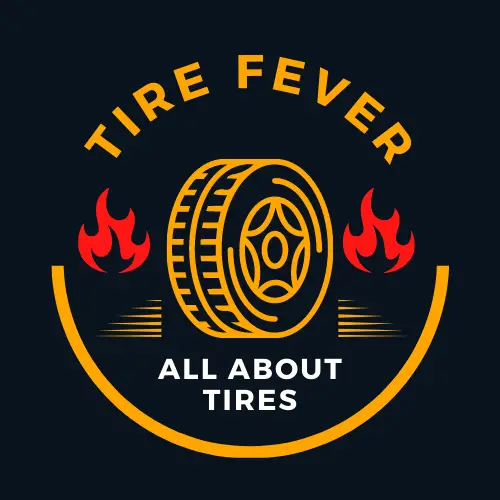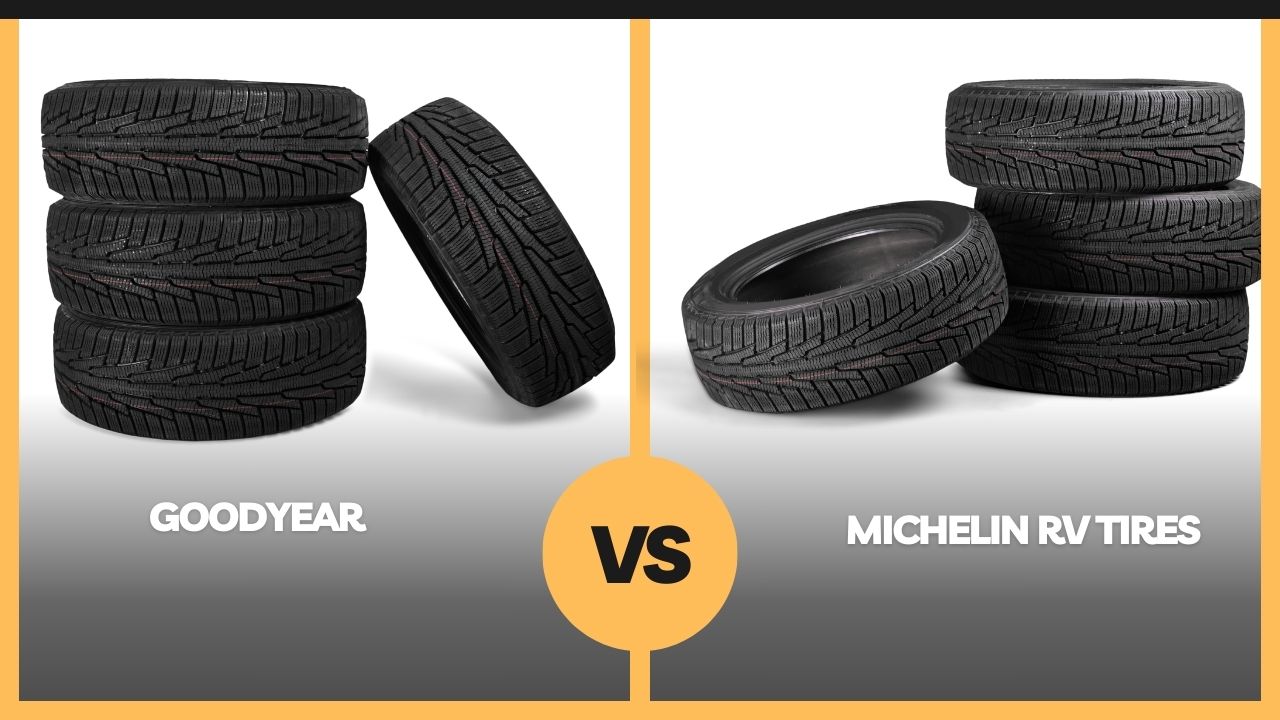Are you in the market for new tires for your RV? If so, you’ve likely come across the age-old debate: Goodyear vs Michelin RV tires. Choosing the right tires for your recreational vehicle is crucial for a smooth and safe journey, but with so many options available, it can be overwhelming to make a decision. In this blog post, we will explore the key differences between Goodyear and Michelin RV tires, helping you make an informed choice that suits your specific needs and preferences.
When it comes to RV tires, both Goodyear and Michelin have established themselves as reputable brands in the industry. Each brand offers a wide range of tire options designed to enhance the performance and safety of your RV. From all-season tires to specialized models for different terrains, both Goodyear and Michelin have something to offer every RV owner. But what sets them apart? Let’s dive deeper into the features, benefits, and customer reviews to find out which brand reigns supreme in the world of RV tires.
The Historical Journey of goodyear
Goodyear, founded in 1898 by Frank Seiberling, is an American multinational tire manufacturing company. It quickly gained prominence and became one of the world’s largest tire manufacturers. In the early 20th century, Goodyear played a significant role in the development of the aviation industry by producing tires for the Wright brothers’ aircraft.
Throughout its history, Goodyear has introduced several noteworthy products. In 1903, they introduced the first detachable tire, which revolutionized the tire industry. In the 1920s, Goodyear introduced the first pneumatic airplane tire, further solidifying its position in the aviation sector. In the 1960s, they introduced the Polyglas tire, which became a popular choice for muscle cars due to its improved traction and durability.
In recent years, Goodyear has continued to innovate and expand its product range. They have introduced advanced tire technologies such as RunOnFlat tires, which allow vehicles to continue driving even after a puncture, and Fuel Max tires, designed to improve fuel efficiency. Goodyear’s commitment to innovation and quality has made it a trusted name in the tire industry for over a century.
The Historical Journey of michelin rv tires
Michelin RV tires have a rich history dating back to 1889 when the Michelin brothers, André and Édouard, founded the company in France. Initially focused on bicycle tires, Michelin expanded its product range to include automobile tires in the early 1900s. Over the years, Michelin has become a leading manufacturer of high-quality RV tires, known for their durability, performance, and innovative features.
One of Michelin’s noteworthy products in the RV tire category is the Michelin XRV, introduced in the 1990s. The XRV is designed specifically for recreational vehicles, offering excellent traction, stability, and a long tread life. Another notable product is the Michelin Defender LTX M/S, which combines all-season capabilities with enhanced durability, making it a popular choice among RV owners.
In recent years, Michelin has continued to innovate in the RV tire market. They introduced the Michelin CrossClimate RV tire, which provides superior performance in both wet and dry conditions, as well as improved fuel efficiency. Michelin’s commitment to quality and innovation has made them a trusted brand among RV enthusiasts worldwide.
You May Also Like:goodyear reliant vs michelin defender
In a hurry here are our top 6 tire recommendations:
- Best Budget Tires
- Best Mid-Range Tires
- Best All-Season Tires
- Best Summer Tires
- Best Winter Tires
- Best Performance Tires
goodyear : Pros and Cons
When it comes to tire selection, every tire brand showcases a distinct array of advantages and disadvantages. Below are the pros and cons of goodyear
Pros:
- High-quality and durable
- Excellent traction and grip
- Wide range of tire options for different vehicles and driving conditions
Cons:
- Relatively higher price compared to some competitors
michelin rv tires : Pros and Cons
When it comes to tire selection, every tire brand showcases a distinct array of advantages and disadvantages. Below are the pros and cons of michelin rv tires
Pros:
- Long-lasting and durable
- Excellent traction and grip
- Designed specifically for RVs and motorhomes
- Good fuel efficiency
- Reliable performance
Cons:
- Higher price compared to other brands
- May not be suitable for extreme off-road conditions
- Limited availability in some areas
Also Read: goodyear vs pirelli
Comparison: goodyear vs michelin rv tires Key Differences
When comparing goodyear and michelin rv tires, there are several key differences to consider. These differences include pricing, warranties, fuel efficiency, comfort, wet performance, dry performance, winter performance, and noise performance. Check out these other comparisons.
Let’s now dive deeper into how goodyear and michelin rv tires perform in each of these key focus areas.
Pricing:
- Goodyear RV tires tend to be more affordable compared to Michelin RV tires.
- Michelin RV tires are generally more expensive due to their reputation for high-quality and long-lasting performance.
- Goodyear offers a range of budget-friendly options for RV owners.
- Michelin RV tires are known for their superior durability and tread life, justifying their higher price point.
- Overall, Goodyear RV tires are a more cost-effective choice for those on a budget, while Michelin RV tires offer premium quality at a higher price.
Warranties:
- Goodyear RV tires typically come with a limited warranty that covers defects in workmanship and materials for a specific period of time or mileage.
- Michelin RV tires, on the other hand, usually come with a comprehensive warranty that covers defects in workmanship and materials, as well as road hazard damage for a specific period of time or mileage.
- Michelin’s warranty also includes a satisfaction guarantee, allowing customers to receive a refund or replacement if they are not satisfied with their tires within a certain timeframe.
Fuel Efficiency:
- Goodyear RV tires generally have better fuel efficiency compared to Michelin RV tires.
- Goodyear tires are designed with Fuel Max Technology, which helps reduce rolling resistance and improve fuel economy.
- Michelin RV tires also offer good fuel efficiency but may not be as efficient as Goodyear tires.
- Both brands offer a range of tire models with varying fuel efficiency ratings, so it’s important to compare specific models for accurate comparisons.
Comfort:
- Goodyear RV tires provide a comfortable ride due to their advanced technology and innovative design.
- Michelin RV tires offer exceptional comfort with their superior construction and high-quality materials.
- Goodyear tires are known for their smooth and quiet performance, ensuring a comfortable driving experience.
- Michelin tires are designed to reduce road noise and vibrations, resulting in a comfortable and enjoyable ride.
- Both brands prioritize comfort, but Goodyear tires may offer a slightly smoother ride, while Michelin tires excel in reducing noise and vibrations.
Wet Performance:
- Goodyear RV tires have a deep tread design that enhances wet traction and reduces the risk of hydroplaning.
- Michelin RV tires feature a unique tread compound that provides excellent wet grip and improved braking performance.
- Goodyear tires have wide circumferential grooves that efficiently evacuate water, enhancing wet performance.
- Michelin tires have multiple sipes and biting edges that enhance traction on wet surfaces.
- Both brands offer RV tires with advanced technology for improved wet performance, but the specific models and features may vary.
Dry Performance:
- Goodyear RV tires offer excellent dry performance with their advanced tread compounds and innovative tread patterns.
- Michelin RV tires also provide exceptional dry performance due to their high-quality rubber compounds and unique tread designs.
- Both brands offer superior traction and stability on dry roads, ensuring a smooth and comfortable ride for RV owners.
- Goodyear tires may have a slight edge in dry performance due to their focus on performance-oriented designs.
- Michelin tires are known for their long-lasting tread life, which can contribute to consistent dry performance over time.
Winter Performance:
- Goodyear RV tires have a deep tread design that enhances wet traction and reduces the risk of hydroplaning.
- Michelin RV tires feature a unique tread compound that provides excellent wet grip and improved braking performance.
- Goodyear tires have wide circumferential grooves that efficiently evacuate water, enhancing wet performance.
- Michelin tires have multiple sipes and biting edges that enhance traction on wet surfaces.
- Both brands offer RV tires with advanced technology for improved wet performance, but the specific models and features may vary.
Noise Performance:
- Goodyear RV tires tend to have a quieter noise performance compared to Michelin RV tires.
- Goodyear tires are designed with noise reduction technology to minimize road noise and provide a quieter ride.
- Michelin RV tires may produce slightly more noise on the road compared to Goodyear tires.
- However, noise performance can vary depending on the specific tire model and its tread pattern.
Also Read:goodyear eagle vs michelin pilot
Use goodyear if:
Use Goodyear if you are looking for a cost-effective option that provides a comfortable ride, excellent fuel efficiency, and reliable wet traction. Their wide range of tire options for different vehicles and driving conditions, along with their high-quality and durable construction, make them a reliable choice.
Use michelin rv tires if:
you prioritize long-lasting durability, excellent traction, and reliable performance in your RV or motorhome. Additionally, if you value good fuel efficiency and are willing to invest in a higher-priced tire, Michelin RV tires are a suitable choice.
You May Also Like: BFGoodrich vs Firestone Tire and Rubber Company
Final Thoughts
- Both Goodyear and Michelin RV tires offer high-quality and durable options with excellent traction and grip.
- While Goodyear provides a wide range of tire options for different vehicles and driving conditions, Michelin specializes in designing tires specifically for RVs and motorhomes with good fuel efficiency and reliable performance.
- However, both brands have a higher price compared to some competitors, and Michelin tires may not be suitable for extreme off-road conditions and have limited availability in some areas.
This post contains affiliate links. Read the full disclosure here.


I am passionate about all things automotive and have a deep understanding of the topic. As a mechanic, I use my free time to share knowledge of everyday challenges that any car owner can experience – helping you make informed decisions about tires.

